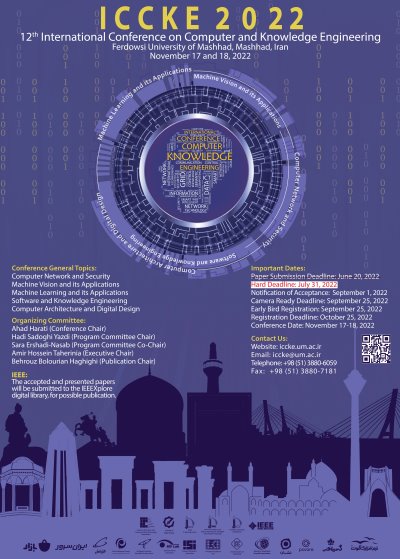0% Complete

Authors :
Keywords :
Abstract :
List of archived papers
Amir Bidokhti - Shahrokh Ghaemmaghami
Mehdi Zirak - Yasser Sedaghat - Mohammad Hossein Yaghmaee Moghaddam
Mobin Vaziri - Mohammad Mehdi Rahimifar - Hadi Jahanirad
Anita Ghandehari - Soheil Shirvani - Hadi Moradi
Mina Abroodi - Mohammad Reza Keyvanpour - Ghazaleh Kakavand Teimoory
Zaniar Sharifi - Khabat Soltanian - Ali Amiri
Reza Tavasoli - Arya VarastehNezhad - Hamed Farbeh
Mohammad Heydari - Ali Bayat - Amir Albadvi
Seyed Ehsan Mahmoudi - Mehrnoush Shamsfard
Farzane Abdoli - Hamid Sheikhzade - Vahid Pourahmadi




